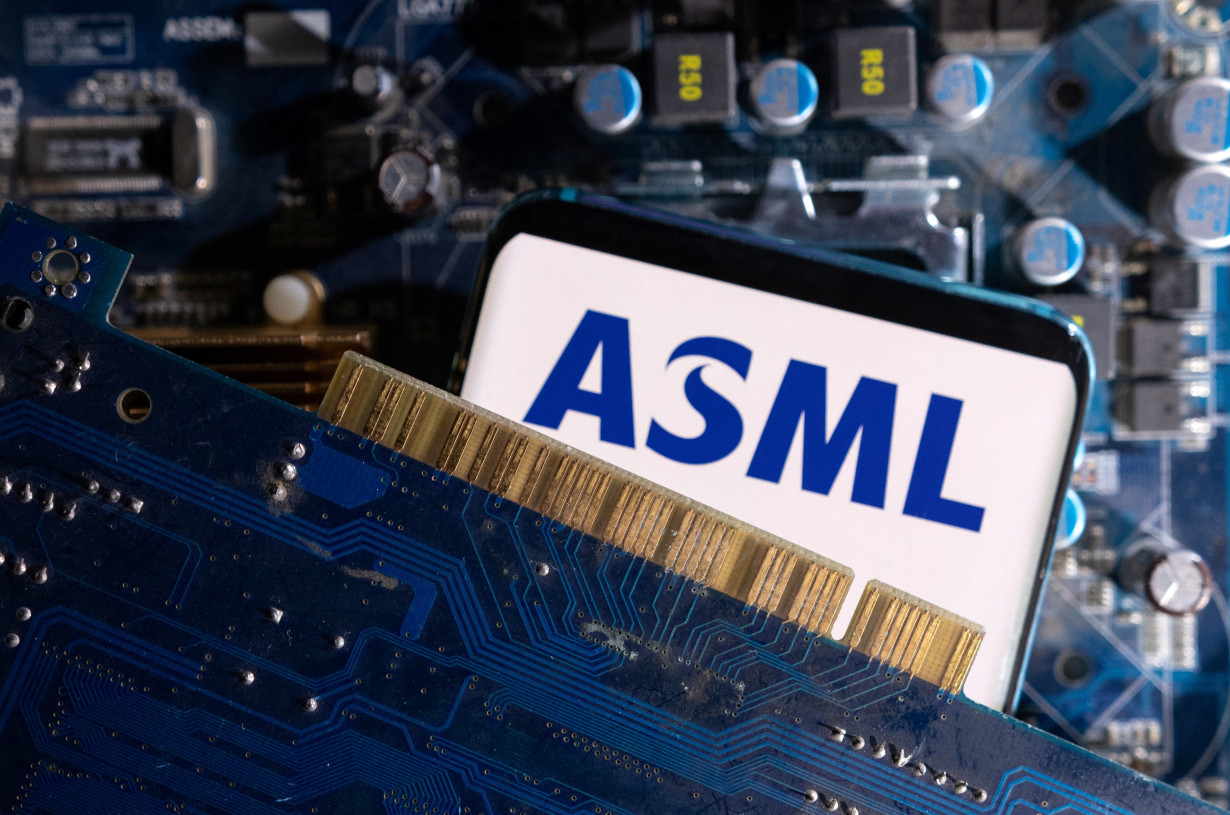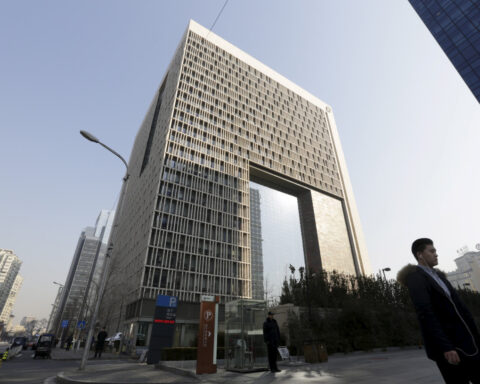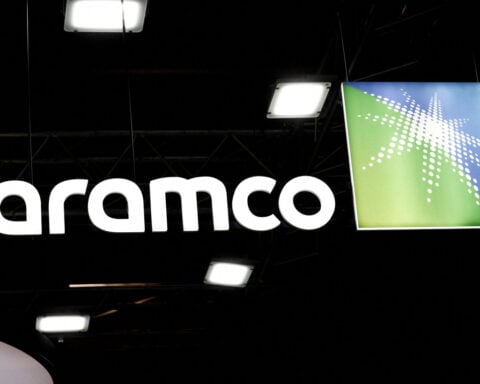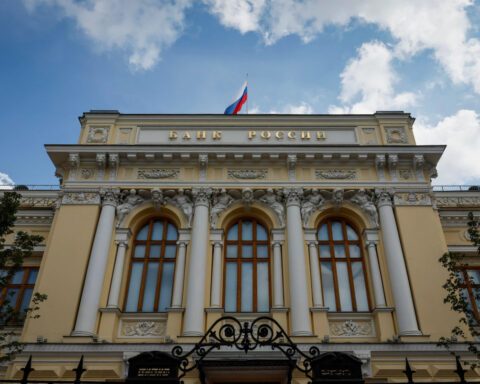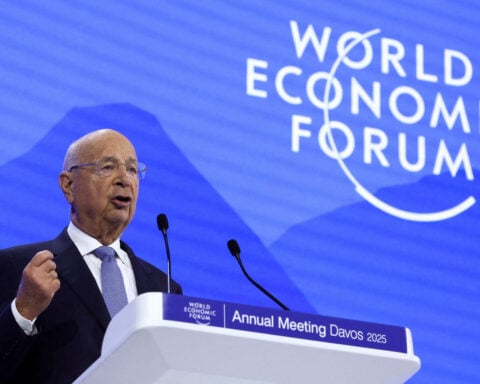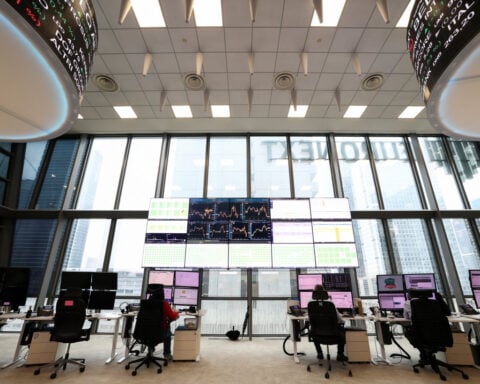By Nathan Vifflin and Leo Marchandon
(Reuters) -ASML, the world's biggest supplier of computer chip-making equipment, said on Wednesday that tariffs were increasing uncertainty for its outlook for 2025 and 2026.
Chief Executive Officer Christophe Fouquet said his conversations with customers supported ASML's expectations that 2025 and 2026 would be growth years.
"However, the recent tariff announcements have increased uncertainty in the macro environment," Fouquet said in a statement.
The Dutch group's finance chief Roger Dassen broke down four categories of tariffs that could impact it in an internal interview published on ASML's website.
Those were shipments to the United States, tariffs on imported parts and tools, material imports needed for its manufacturing operations there, and tariffs from other countries on U.S. exports.
Dassen also warned of the indirect impact on global economic growth, which is yet to be quantified.
"We're very actively working with the entire ecosystem to try and minimize the overall impact on the whole ecosystem as a result of that," he said.
The global race for AI has put ASML at the forefront of the industry, as the maker of the world's most advanced chip circuitry engraving system, the EUV lithography machine, which makes the chips of designers like Nvidia or Apple.
Artificial intelligence continues to be the main growth driver for ASML, Fouquet said in the quarterly earnings release.
"It has created a shift in the market dynamics that benefits some customers more than others, contributing to both upside potential and downside risks as reflected in our 2025 revenue range," he added about AI.
ASML's net bookings, the most closely watched figure in the industry, were 3.9 billion euros ($4.4 billion) in the first three months of 2025, below analysts' consensus estimate of 4.89 billion euros compiled by researcher Visible Alpha.
The company forecast sales of 7.2 billion to 7.7 billion euros for the second quarter, compared with analysts' expectations of 7.73 billion, according to LSEG data, and the 7.7 billion recorded in the first quarter.
($1 = 0.8814 euros)
(Reporting by Nathan Vifflin and Leo Marchandon in Gdansk, editing by Milla Nissi)

 Trump has begun another trade war. Here's a timeline of how we got here
Trump has begun another trade war. Here's a timeline of how we got here
 Canada's leader laments lost friendship with US in town that sheltered stranded Americans after 9/11
Canada's leader laments lost friendship with US in town that sheltered stranded Americans after 9/11
 Chinese EV giant BYD's fourth-quarter profit leaps 73%
Chinese EV giant BYD's fourth-quarter profit leaps 73%
 You're an American in another land? Prepare to talk about the why and how of Trump 2.0
You're an American in another land? Prepare to talk about the why and how of Trump 2.0
 Chalk talk: Star power, top teams and No. 5 seeds headline the women's March Madness Sweet 16
Chalk talk: Star power, top teams and No. 5 seeds headline the women's March Madness Sweet 16
 Purdue returns to Sweet 16 with 76-62 win over McNeese in March Madness
Purdue returns to Sweet 16 with 76-62 win over McNeese in March Madness
